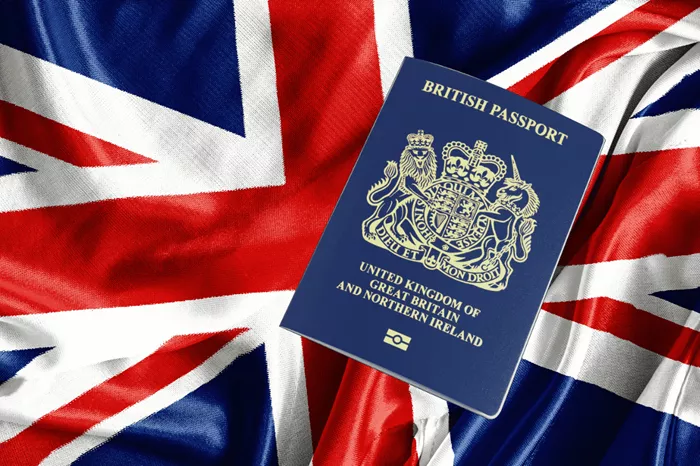Since the United Kingdom’s departure from the European Union (EU), British passport holders have faced changes in the rules and regulations regarding travel to Europe. Although travel remains possible, it is essential for British travelers to understand the updated requirements for entering Schengen Area countries, Ireland, and other European nations post-Brexit. This article explores the key aspects of travel to Europe for British passport holders, covering visa requirements, new systems for border control, and other essential considerations.
Visa Requirements
Short Stays
For short visits to the Schengen Area, British passport holders can still enjoy visa-free travel. As per the current regulations, British travelers can stay in Schengen countries for up to 90 days within a 180-day period without the need for a visa. These stays can be for tourism, business, or family visits.
Longer Stays
For stays longer than 90 days, British passport holders will need to apply for a visa or permit. The specific requirements will vary depending on the country and the purpose of the visit, whether it’s for work, study, or family reunification. Each European country has its own regulations for long-term stays, so it is essential to check the specific visa requirements of the country you plan to visit.
Entry/Exit System (EES)
In order to enhance security and manage border crossings, the European Union is implementing a new Entry/Exit System (EES), which will come into effect in November 2024. This system will affect British passport holders traveling to the Schengen Area.
Biometric Data
British travelers will be required to register their biometric data (fingerprints and photograph) when entering the Schengen Area starting in November 2024. This biometric data will be stored digitally, making it easier for authorities to verify identity and monitor travelers’ movements within the Schengen Area.
Digital Record
Once biometric data is collected, it will be stored for a period of 3 years. This means that for subsequent visits within this period, British passport holders will only need to provide a fingerprint or photograph, streamlining the entry process for future trips.
European Travel Information and Authorisation System (ETIAS)
Starting in 2025, British passport holders will be required to apply for an authorization through the European Travel Information and Authorisation System (ETIAS) before traveling to any Schengen Area country.
Authorization
ETIAS is a new pre-travel screening system that will allow the European Union to vet travelers before they enter the region. The authorization will be mandatory for all non-EU citizens, including British passport holders.
Application Process
The ETIAS application process is relatively straightforward. Applicants will need to provide personal information, such as their passport details, travel plans, and any relevant criminal history. The application will also require a fee of 7 Euros. Once approved, the ETIAS authorization will be valid for three years or until the passport expires, whichever comes first. Importantly, the process should be completed well in advance of travel to avoid delays.
Travel to Ireland
One notable exception to the post-Brexit rules is travel to Ireland. Ireland is not part of the Schengen Area, and the United Kingdom’s exit from the EU does not affect the Common Travel Area (CTA) arrangement between the two nations.
Special Arrangements
British passport holders can still travel to Ireland without a visa for short stays, and the same rights to live and work in Ireland are granted as before. This agreement allows for ease of movement between the UK and Ireland, making it an attractive option for those looking to travel to Europe post-Brexit.
Other Considerations
Check Country-Specific Requirements
While the above rules apply to Schengen Area countries as a whole, it’s important to note that some European countries may have additional or country-specific entry requirements. For example, some countries may request proof of sufficient funds for the duration of the stay or health insurance coverage. Always ensure that you check the specific entry requirements of the country or countries you plan to visit ahead of time.
Travel Insurance
It is highly recommended that British passport holders obtain adequate travel insurance when visiting Europe. Comprehensive travel insurance should include coverage for medical emergencies, trip cancellations, lost luggage, and other potential issues. Many countries within the Schengen Area require visitors to have travel insurance as a condition of entry.
Conclusion
Traveling to Europe as a British passport holder post-Brexit involves a few key changes. Short stays of up to 90 days within a 180-day period remain visa-free, but longer visits will require a visa or permit. British passport holders will need to comply with the upcoming Entry/Exit System (EES) and obtain an ETIAS authorization for travel to Schengen Area countries starting in 2025.
However, traveling to Ireland remains unchanged, as British passport holders continue to enjoy visa-free travel under the Common Travel Area agreement. As always, it’s crucial to check the specific entry requirements for the country you plan to visit and stay informed about any regulatory changes.
By staying informed and planning ahead, British travelers can continue to explore Europe with ease, ensuring a smooth and enjoyable trip.

